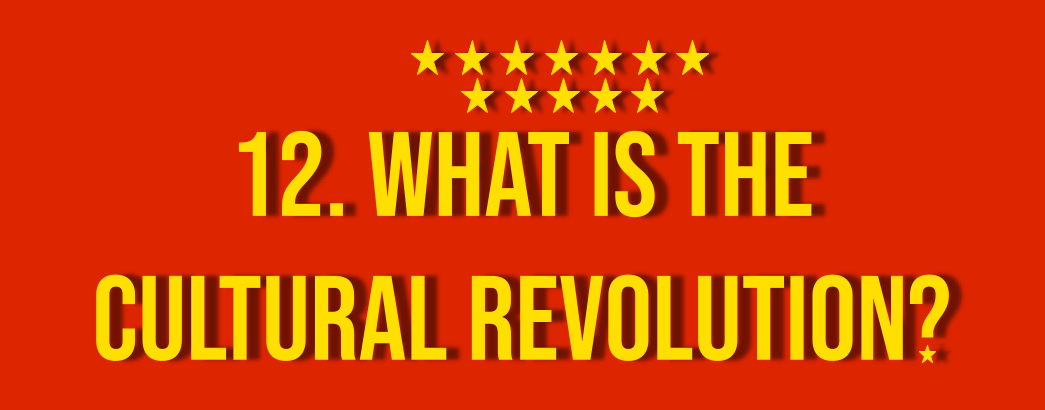12. What is the Cultural Revolution
The Cultural Revolution, a tumultuous socio-political movement that swept across China from 1966 to 1976, represented a pivotal chapter in the history of the People's Republic of China. Initiated by Chairman Mao Zedong, the Cultural Revolution sought to revitalize revolutionary fervor, purge counter-revolutionary elements, and instill a fervent adherence to Maoist ideology among the populace. This comprehensive essay aims to provide a comprehensive overview of the Cultural Revolution, its ideological underpinnings, its impact on Chinese society, and its enduring legacy in contemporary China.
Ideological Underpinnings and Policy Objectives
The Cultural Revolution was underpinned by Chairman Mao Zedong's vision of fostering a proletarian cultural revolution aimed at revitalizing revolutionary zeal, eliminating bourgeois elements, and consolidating his position within the Chinese Communist Party (CCP). Mao's endorsement of the Red Guard movement, comprising radicalized youth groups, reflected his commitment to purging counter-revolutionary influences and challenging perceived threats to the purity of the communist ideology. The campaign sought to promote Maoist thought, eradicate traditional cultural norms and values, and cultivate unwavering loyalty to the CCP and its revolutionary principles.
Impact on Chinese Society and Political Landscape
The Cultural Revolution had profound and far-reaching impacts on Chinese society and the political landscape, characterized by widespread social upheaval, political persecution, and the dismantling of traditional institutions and cultural practices. The systematic targeting of intellectuals, artists, and individuals associated with perceived bourgeois or counter-revolutionary activities led to widespread purges, public humiliations, and the destruction of cultural artifacts and historical sites. The ensuing chaos and political turmoil engendered a climate of fear and ideological conformity, fostering an environment of surveillance and suspicion within communities and institutions.
Legacy and Contemporary Assessment
The legacy of the Cultural Revolution continues to reverberate in contemporary Chinese society, underscoring its enduring impact on the nation's political discourse, cultural landscape, and collective memory. While proponents commend the Cultural Revolution's role in fostering ideological unity and promoting socialist values, critics condemn its legacy of political purges, social disintegration, and the suppression of intellectual freedom. The scars of the Cultural Revolution, manifested in the collective trauma and enduring repercussions on China's cultural heritage, serve as a poignant reminder of the perils of ideological extremism and the imperative of preserving historical memory to safeguard against the recurrence of similar tumultuous periods.
Final thoughts
The Cultural Revolution stands as a seminal and divisive chapter in the history of the People's Republic of China, marked by its fervent ideological fervor, the systematic purges of perceived counter-revolutionary elements, and the lasting imprint on China's social and political fabric. The enduring legacy of the Cultural Revolution underscores the complexities of navigating ideological conformity, political dissent, and the preservation of cultural heritage within a revolutionary context. Understanding the multifaceted dimensions of the Cultural Revolution is paramount for comprehending its profound impact on China's socio-political landscape and its enduring legacy in shaping the nation's contemporary ideological trajectory.



